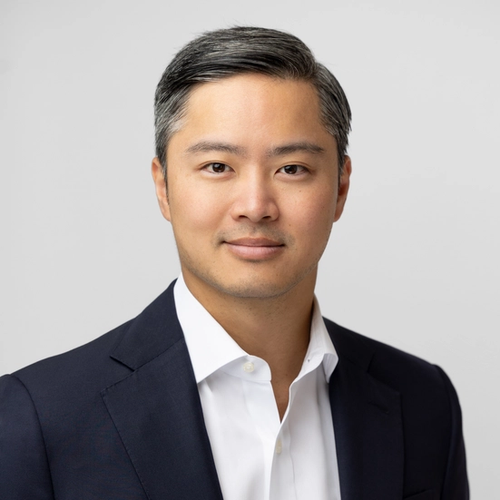Anna Sundell: The Circular Economy Has More To Do With Net Zero Than You Think


If you are redesigning your production with circularity in mind, you’re thinking about what happens to products at the end of their useful life and how they can be repurposed back into society, says Anna Sundell, Partner at EQT.
Last year, almost 190,000 solar panels were installed on rooftops across the UK, along with nearly 40,000 heat pumps. Once in place, the benefits of electrification can likely be felt almost immediately, through cheaper energy bills and the reassurance that a home or business is being future-proofed.
Renewable energy solutions like these are often the first things that come to mind when people think about the transition to net zero and infrastructure investors, rightly, spend a lot of time thinking about how to make these energy sources more readily available.
What’s less talked about though is what will happen in 20 to 30 years, when the solar panels installed today have reached the end of their life.
Questions like this are becoming an increasingly important dimension of infrastructure investing, and the goal of achieving net zero will not be possible without thinking about how we can bake circularity into not just the processes that we already have, like our recycling system, but new ones that will scale as we decarbonize.
This is what we mean when we talk about the circular economy, which is not just about reusing and recycling, but rethinking all of our processes to address waste wherever we find it. It will enable businesses to run as efficiently as possible while extracting as little as possible, having a positive impact on both our economies and the planet.
“Circularity also has an interesting connection to resource security. We have seen how recent events from the Covid-19 pandemic to geopolitical events have put pressure on supply chains. A circular economy can help reduce this pressure, allowing countries to be more self-sufficient.”
Thinking about circularity through this lens of zero waste broadens your vision of just how many industries, processes, and even societal challenges could benefit if we got this right. The construction industry will be a huge beneficiary — the Ellen MacArthur Foundation estimates that €575bn of potential revenues could be unlocked in this sector alone by implementing circular economy strategies — but better resource efficiency will also enhance our waste, packaging, food and water systems, too. In France, for example, 20 percent of distributed water is lost due to leaks; our portfolio company SAUR, headquartered in France and which manages 250,000 kilometers of water pipes, is working to upgrade infrastructure and leak detection management to reduce this.
New infrastructure that is needed to deliver the energy transition — for the production of renewables but also things like batteries, which are essential for managing intermittent supplies and creating a distributed energy system — also needs to be designed with full circularity in mind from the beginning. Battery recycling is becoming an increasingly important requirement for society, and through our investment in Cirba, we are supporting the recycling of around 15 million pounds (lb) of lithium-ion batteries each year, meaning fewer critical minerals need to be extracted from the earth.
Circularity also has an interesting connection to resource security. We have seen how recent events from the Covid-19 pandemic to geopolitical events have put pressure on supply chains. A circular economy can help reduce this pressure, allowing countries to be more self-sufficient.
As you can see, the circular economy extends far beyond asking communities and businesses to remember what goes into their green and brown bins. Recycling does remain an important component though, and we can improve the systems we use today by, again, applying that lens of waste minimization.
Waste-to-energy is a technology that has been contributing to the circular economy for some time, and it’s a theme we have invested in across Europe, the U.S., and, most recently, Asia. These plants take waste that would otherwise enter landfills — it is unlikely we will ever get to a world where 100 percent of waste can be recycled — and treat or incinerate it to generate energy. It supports the circular economy by both diverting waste from landfills and creating reusable resources like aggregates, in addition to new energy supplies.
Still, improvements could be made to transform waste-to-energy from a contributor to the circular economy to a true net-zero solution. Technologies like smart systems and computer vision could potentially be used to improve sorting systems so a greater percentage of waste is recycled, while expanded heat network infrastructure could provide low-carbon heat to homes, buildings, or businesses in a plant’s local area.
The addition of carbon capture could also be a game-changer. Our company Encyclis, which has six plants under construction and in operation, is part of a consortium looking to build the UK’s first carbon capture-enabled energy-from-waste plant.
By adding carbon capture, we can address the carbon emissions that come from non-organic sources during the waste-to-energy process, making it more efficient and getting us closer to net zero. Through this project, the UK government is looking to support the build-out of the A to Z network for industrial decarbonization, which will include the transport and storage of this captured carbon.
The circular economy isn’t just about recycling, but imagining how our economy will operate in a world powered by renewable energy, and making sure they have the most efficient processes to match.
Anna Sundell joined EQT in October 2010. Before joining EQT Anna worked at Nordea Corporate Finance in Stockholm, where she was engaged in M&A and ECM transactions. Prior to Nordea, Anna worked at HSH Nordbank in Stockholm. Anna holds a M.Sc. degree in Business Administration from Stockholm School of Economics and a Law degree from Stockholm University.
ThinQ is the must-bookmark publication for the thinking investor.


